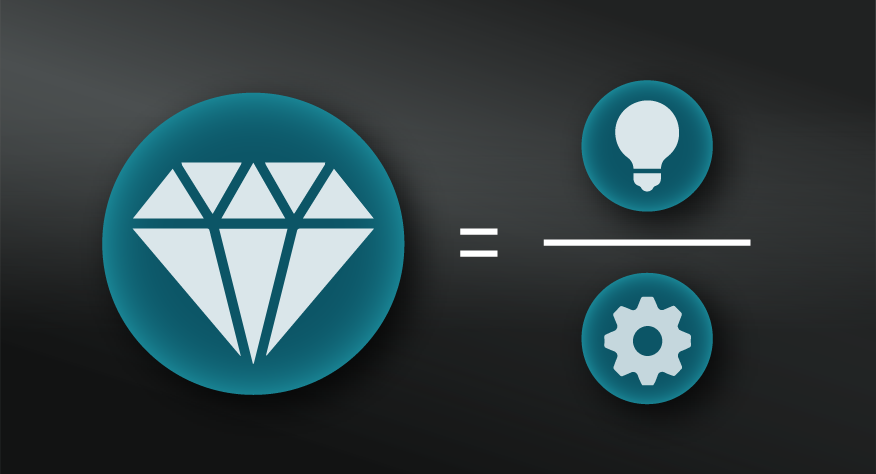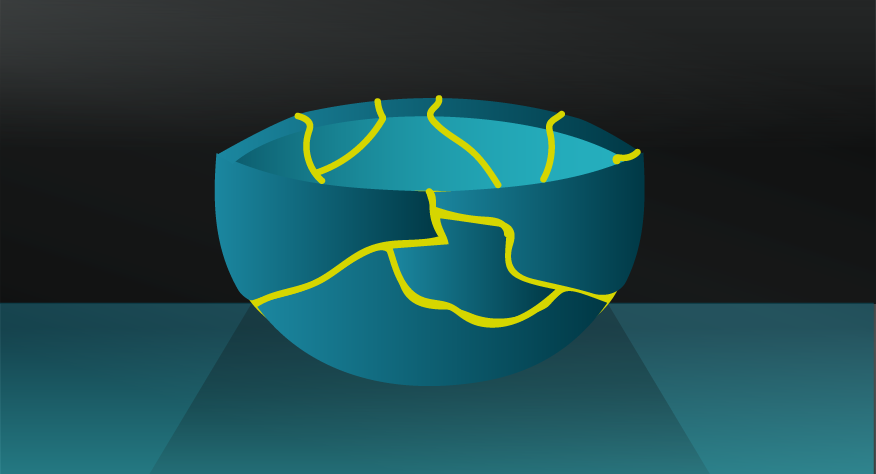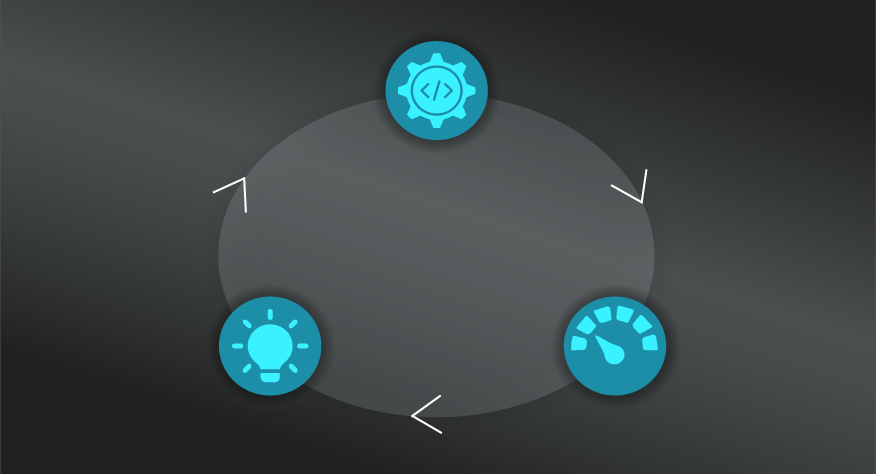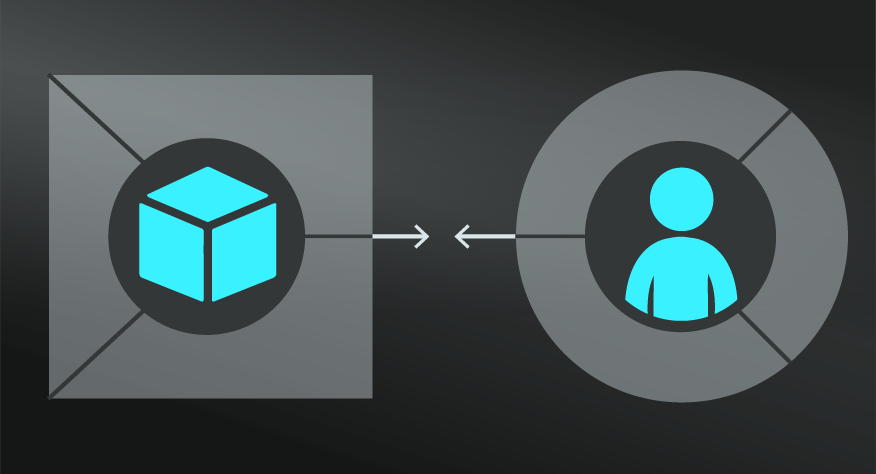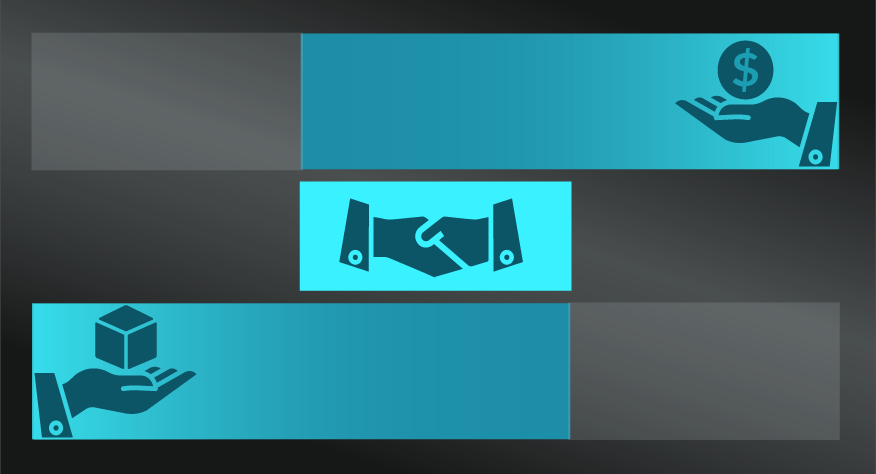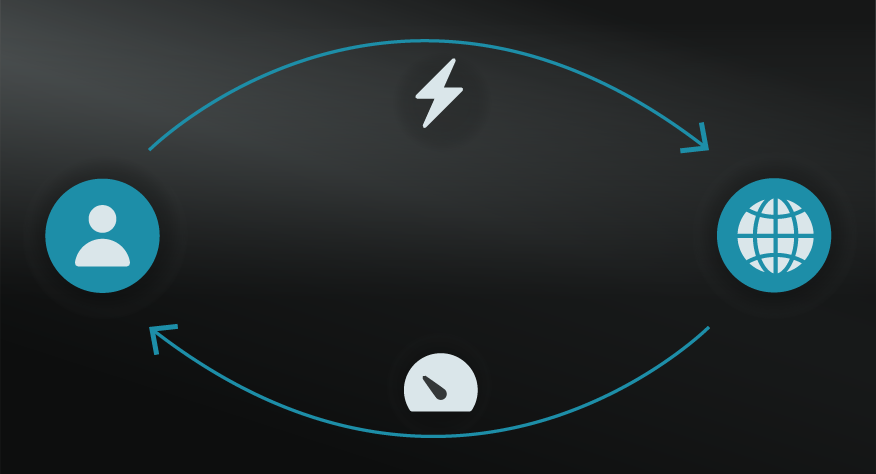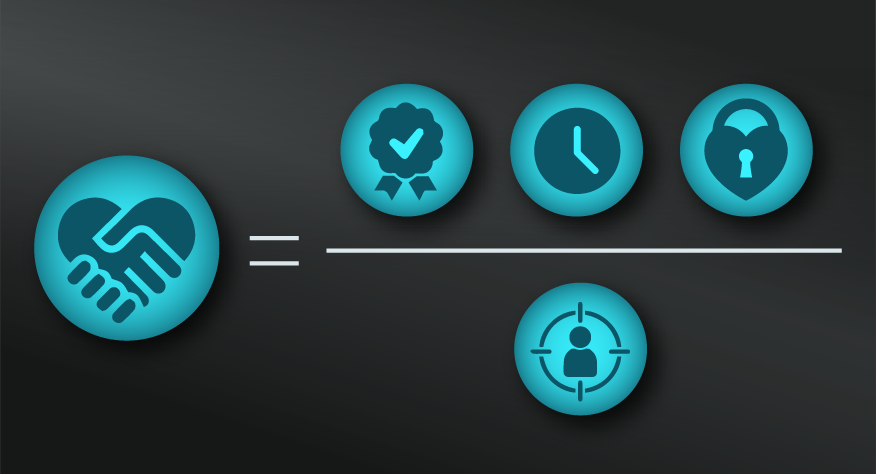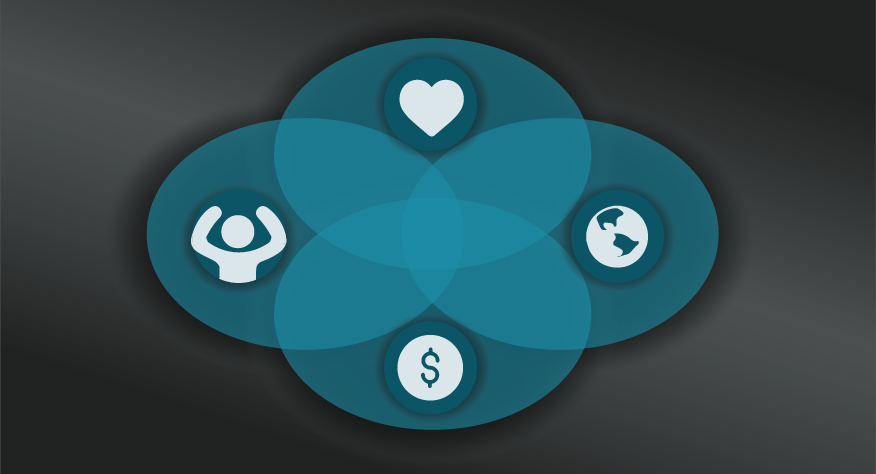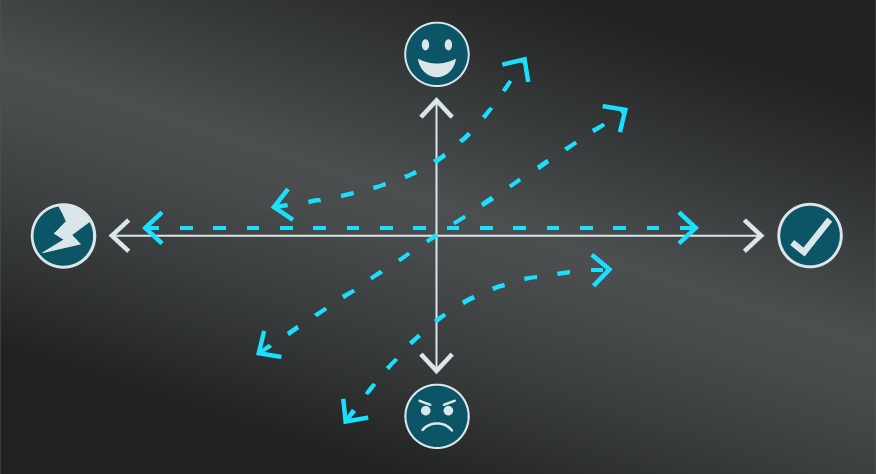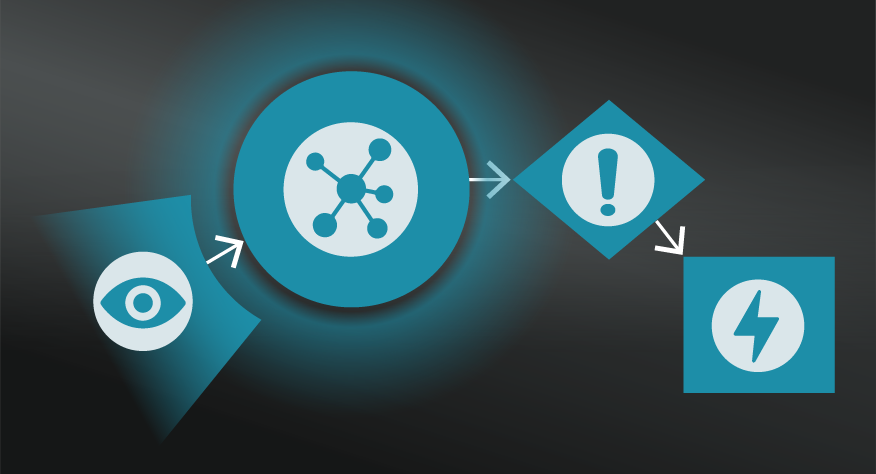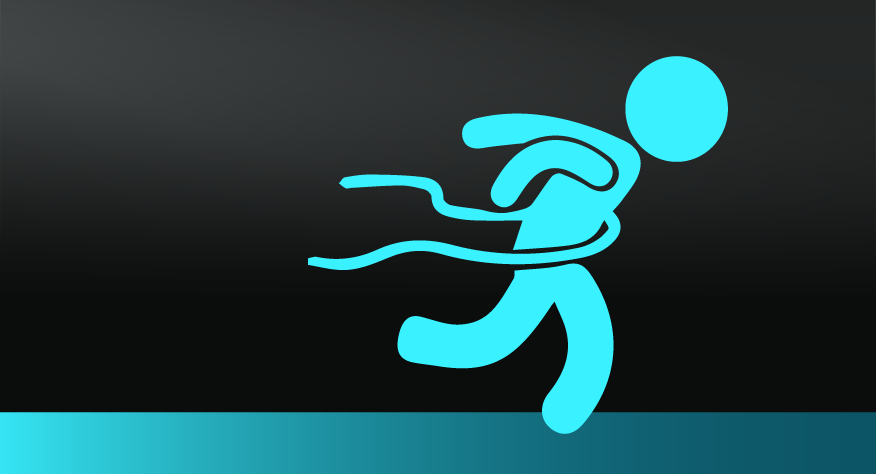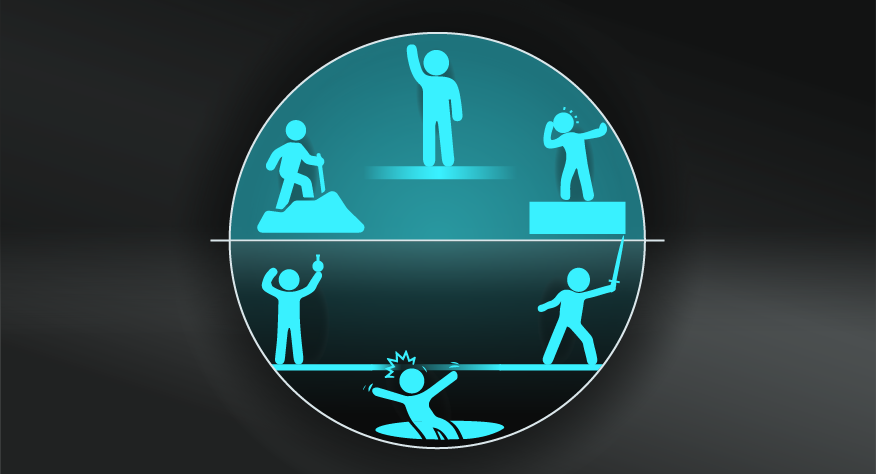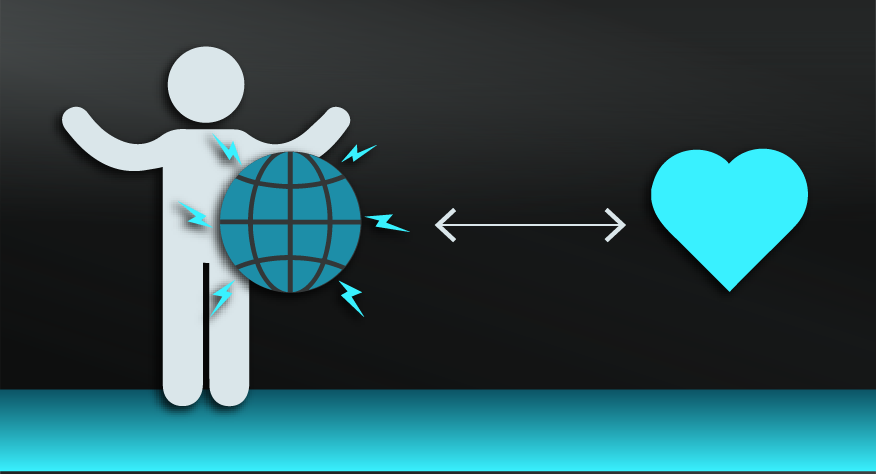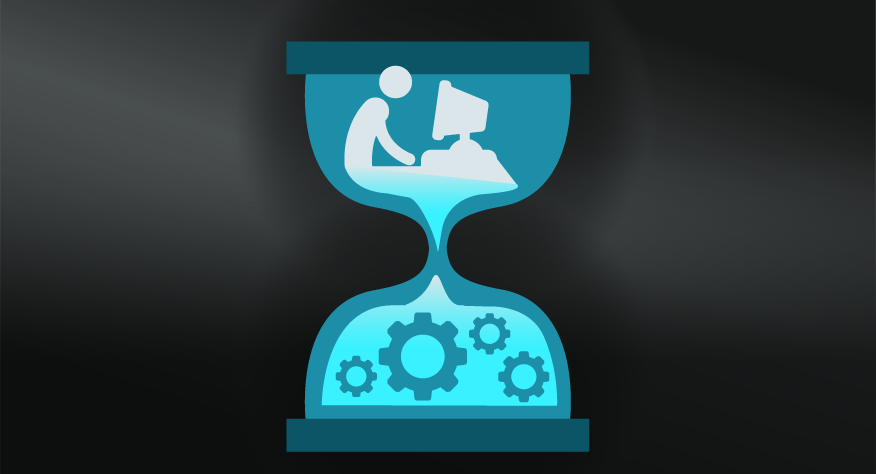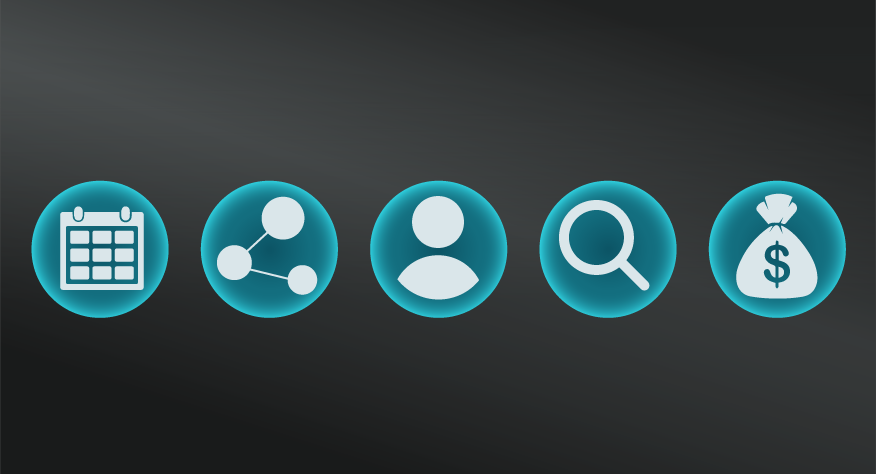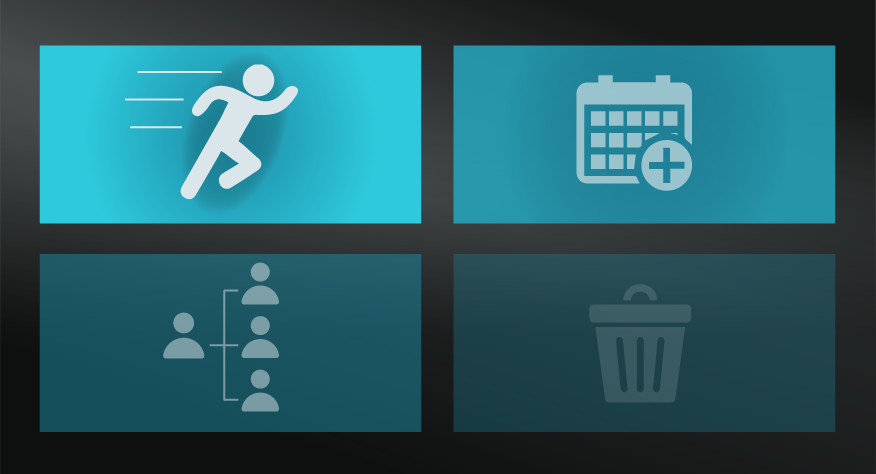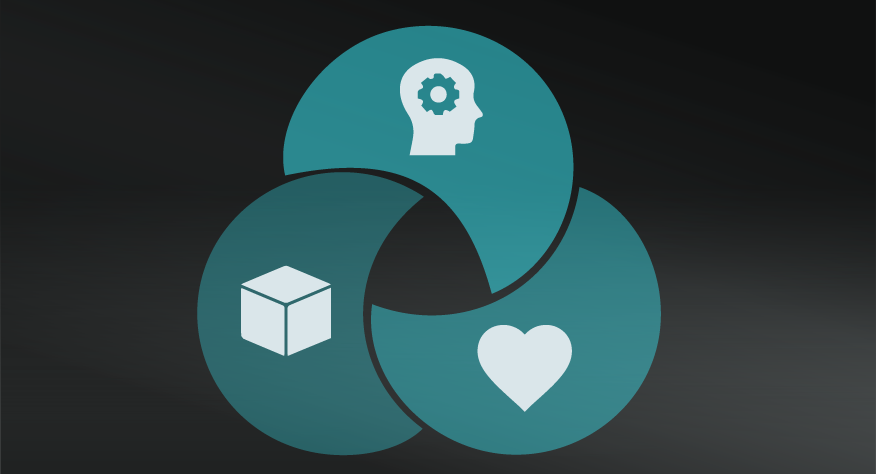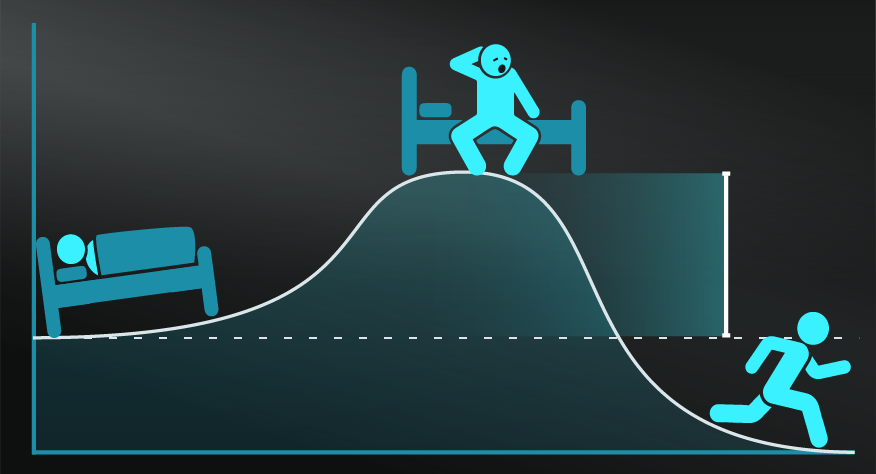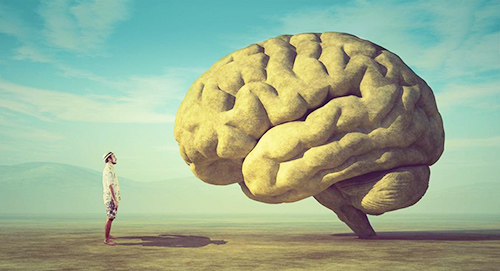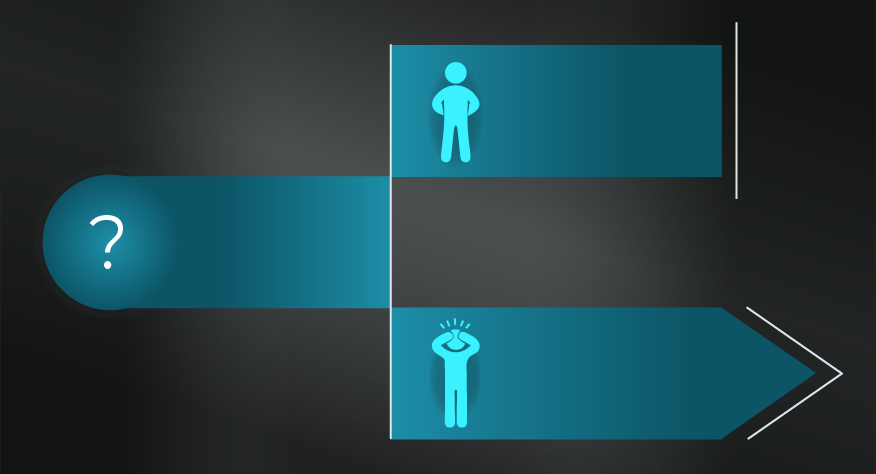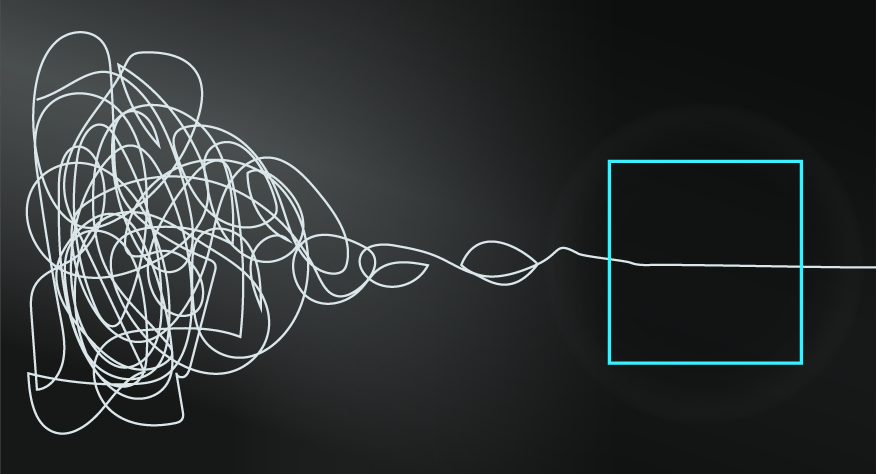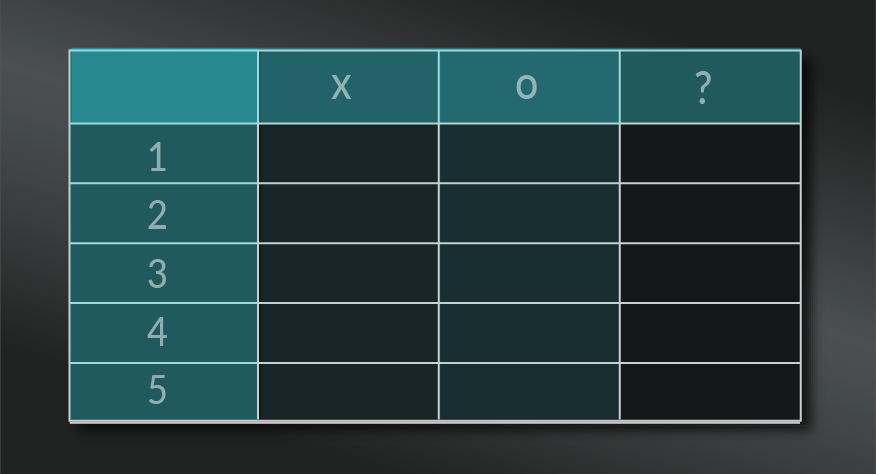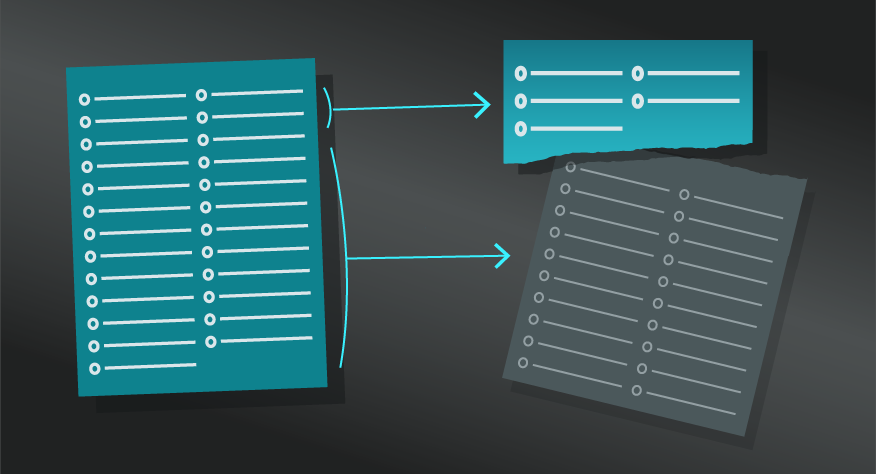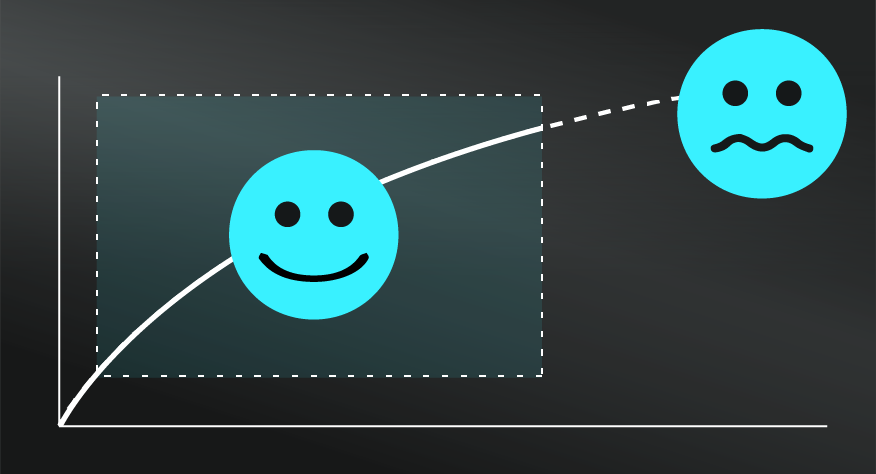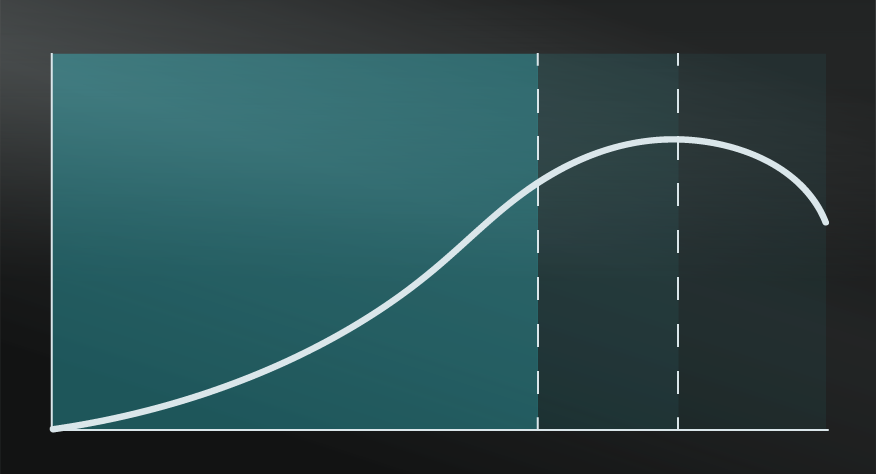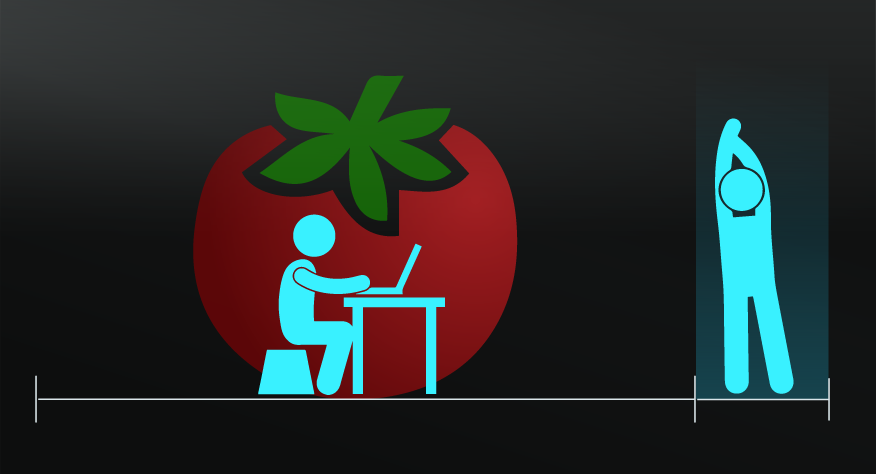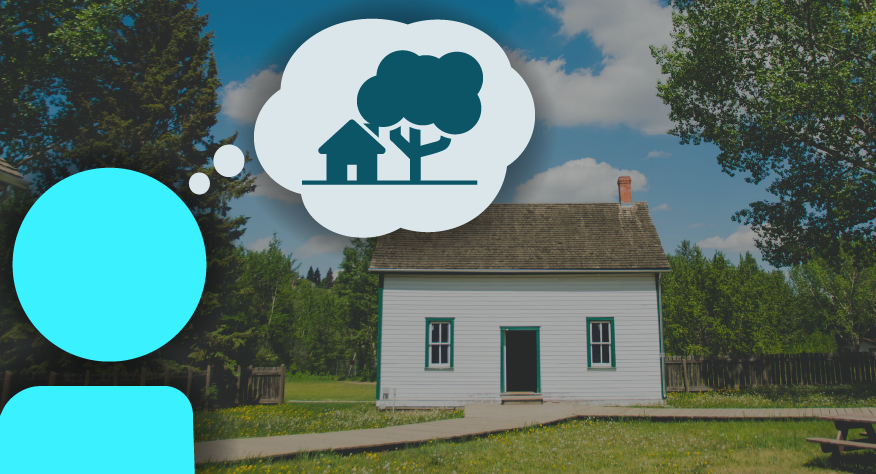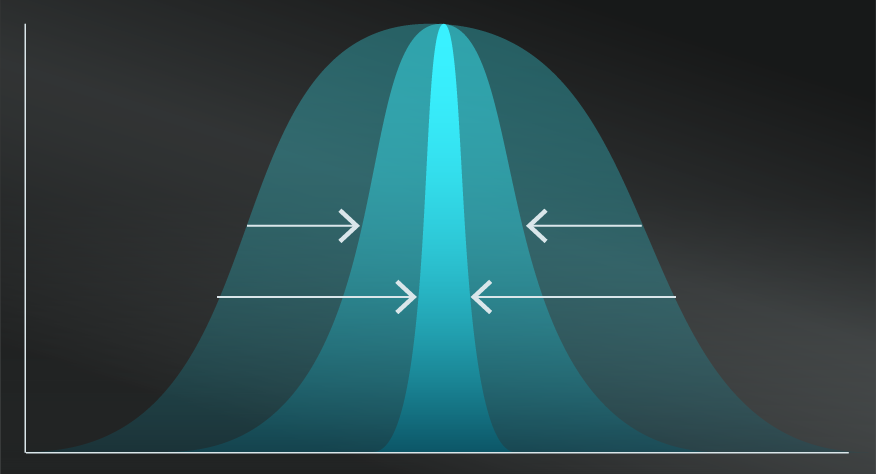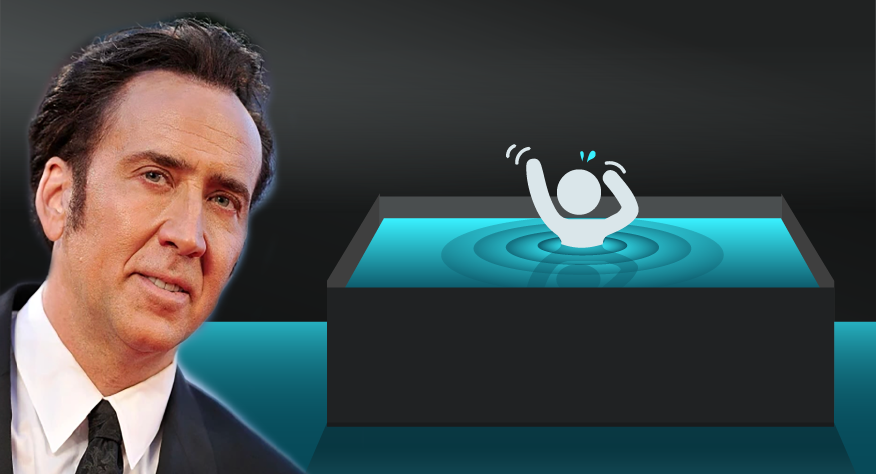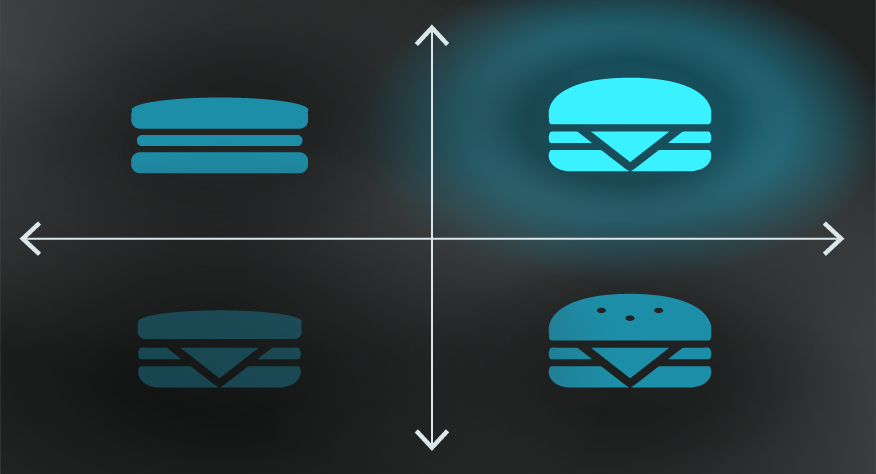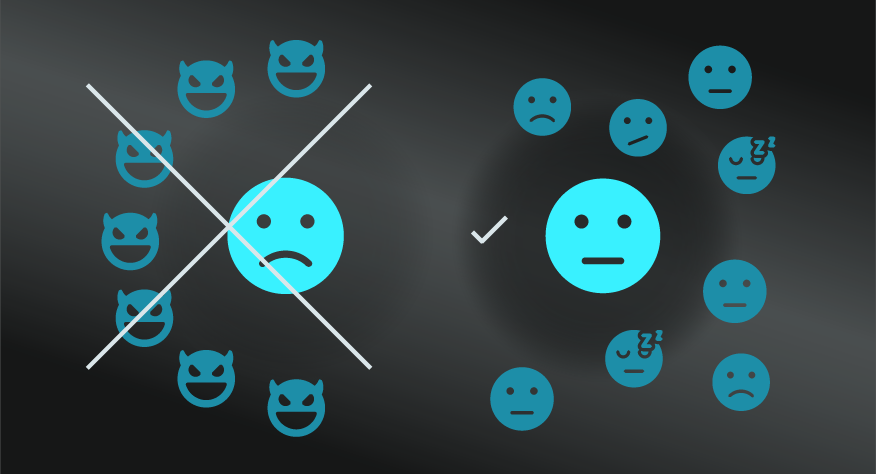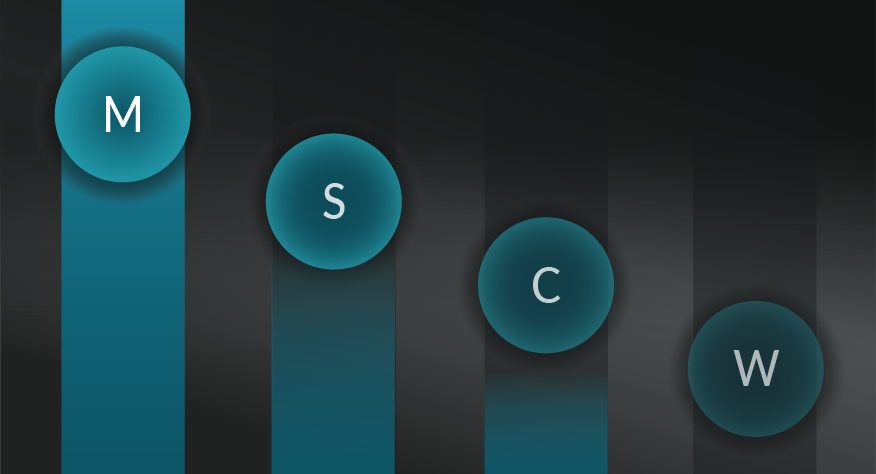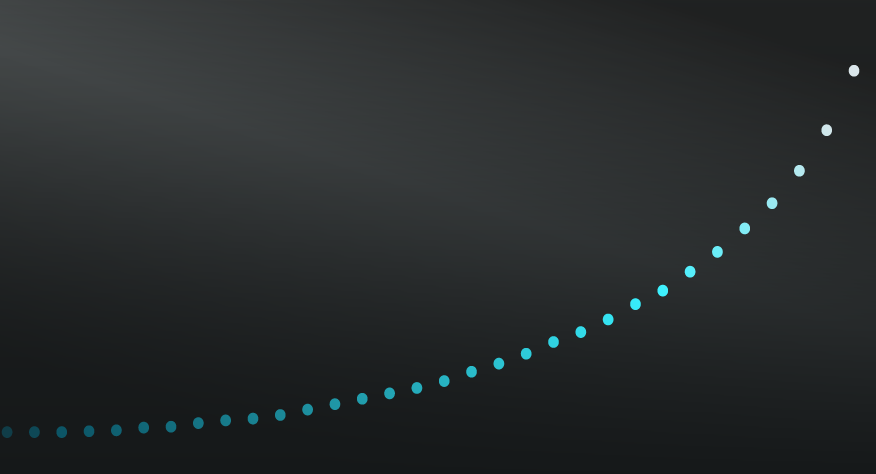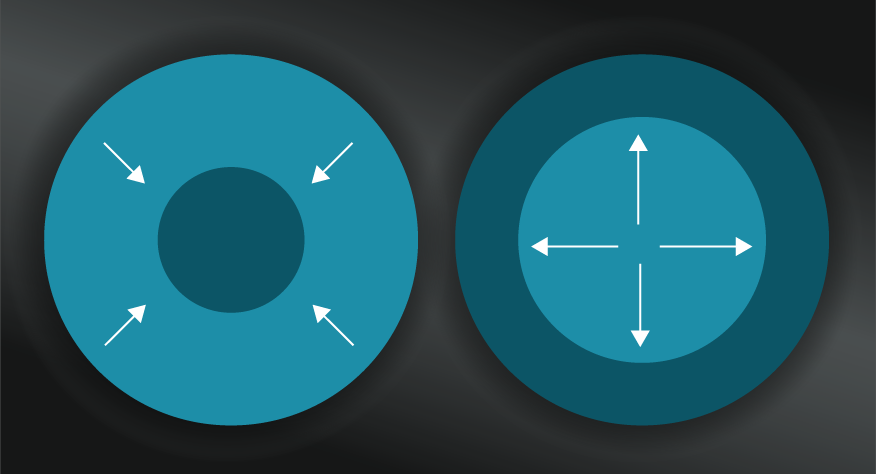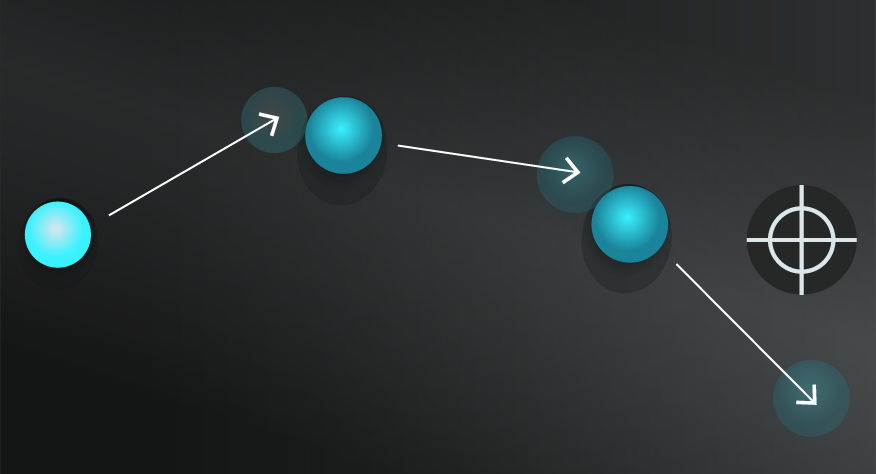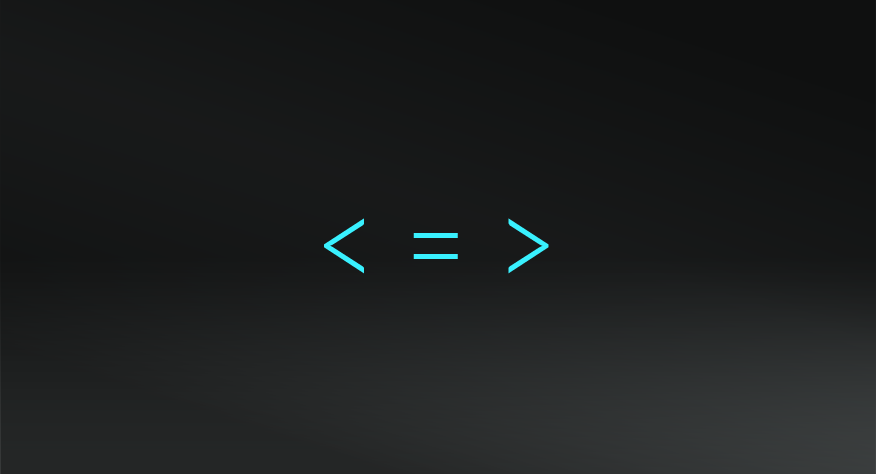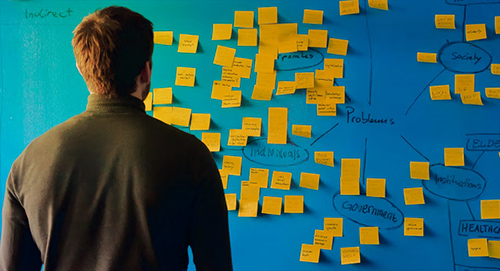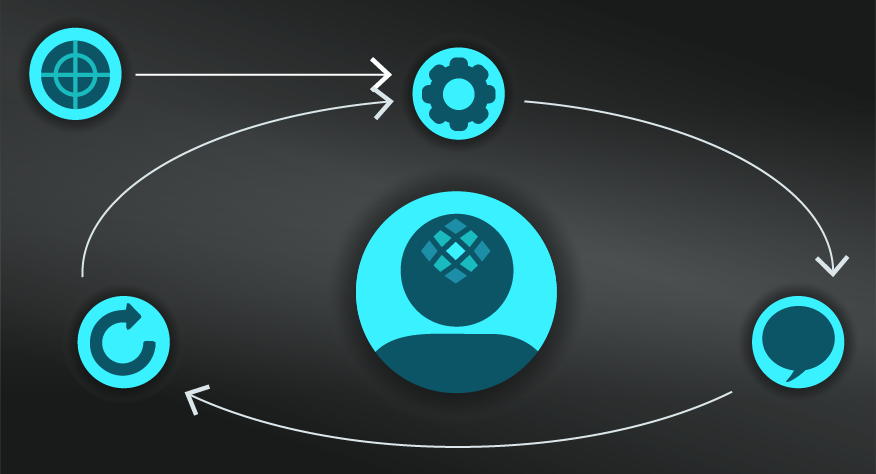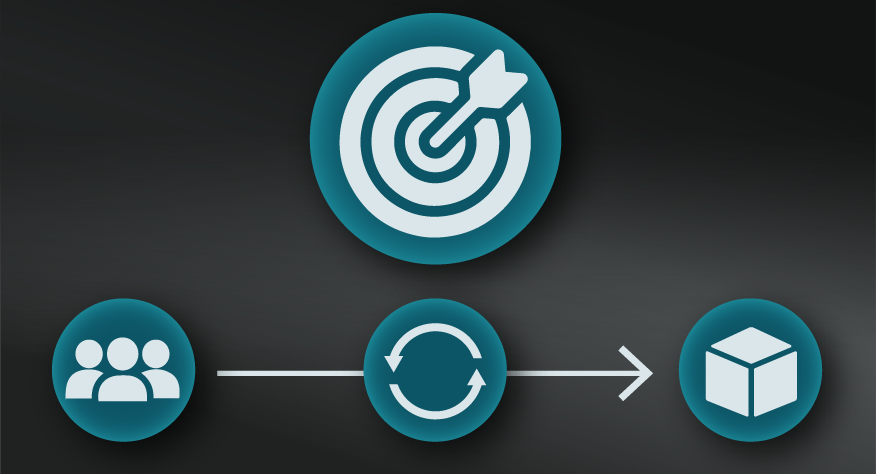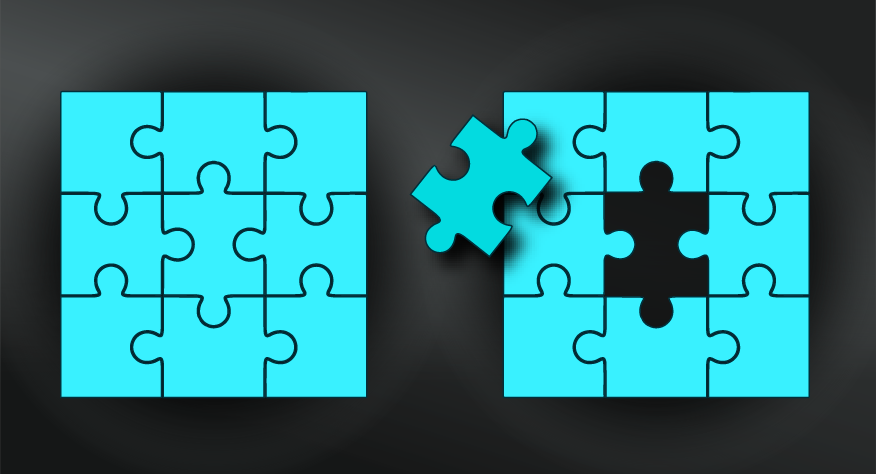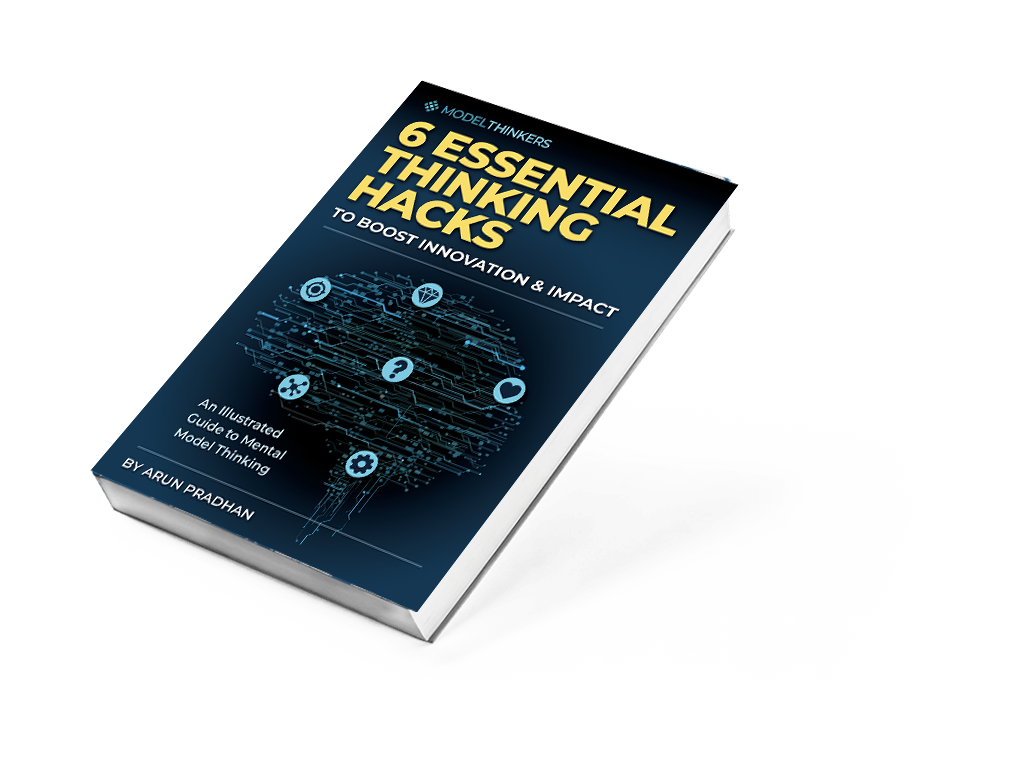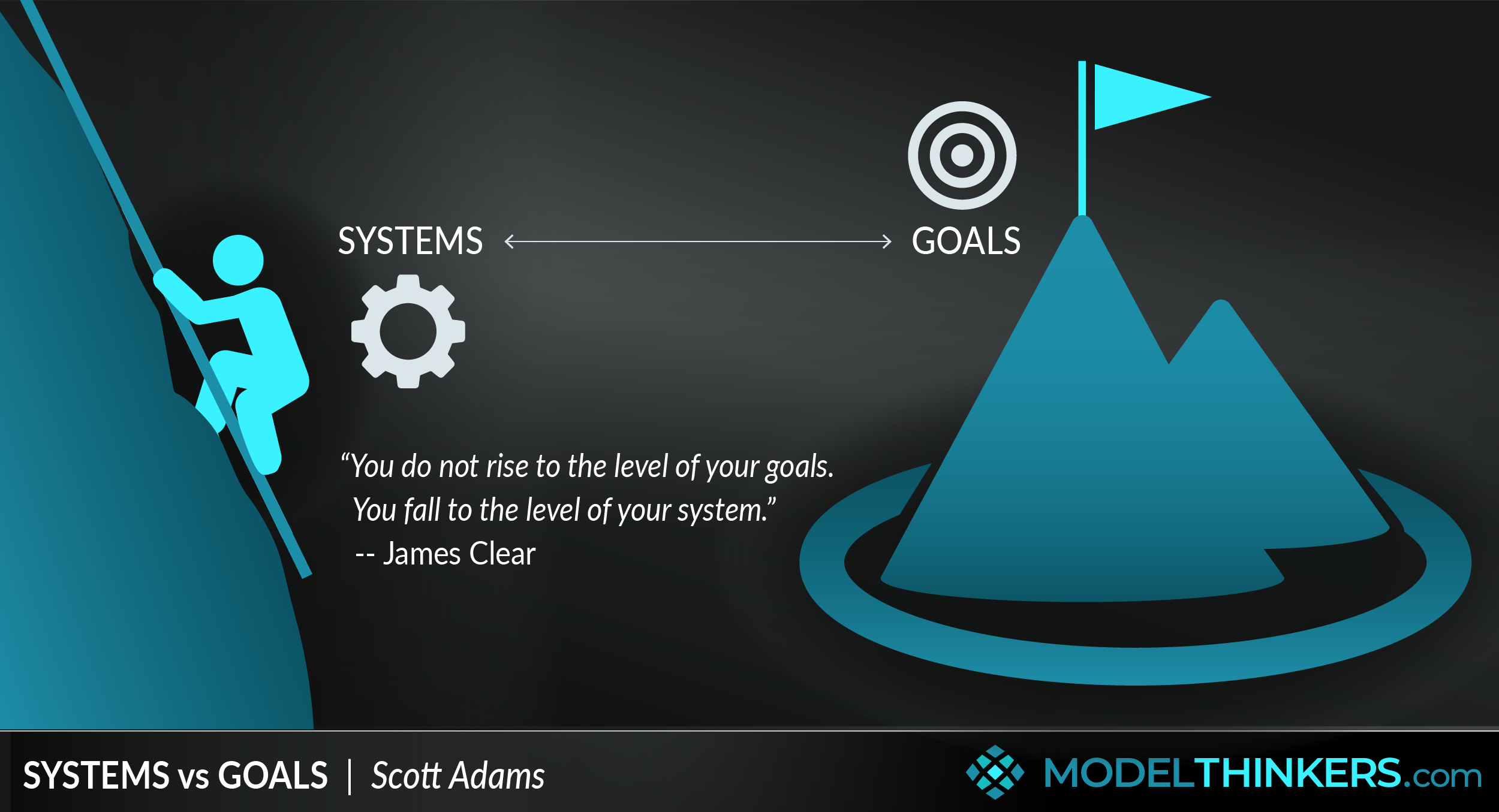
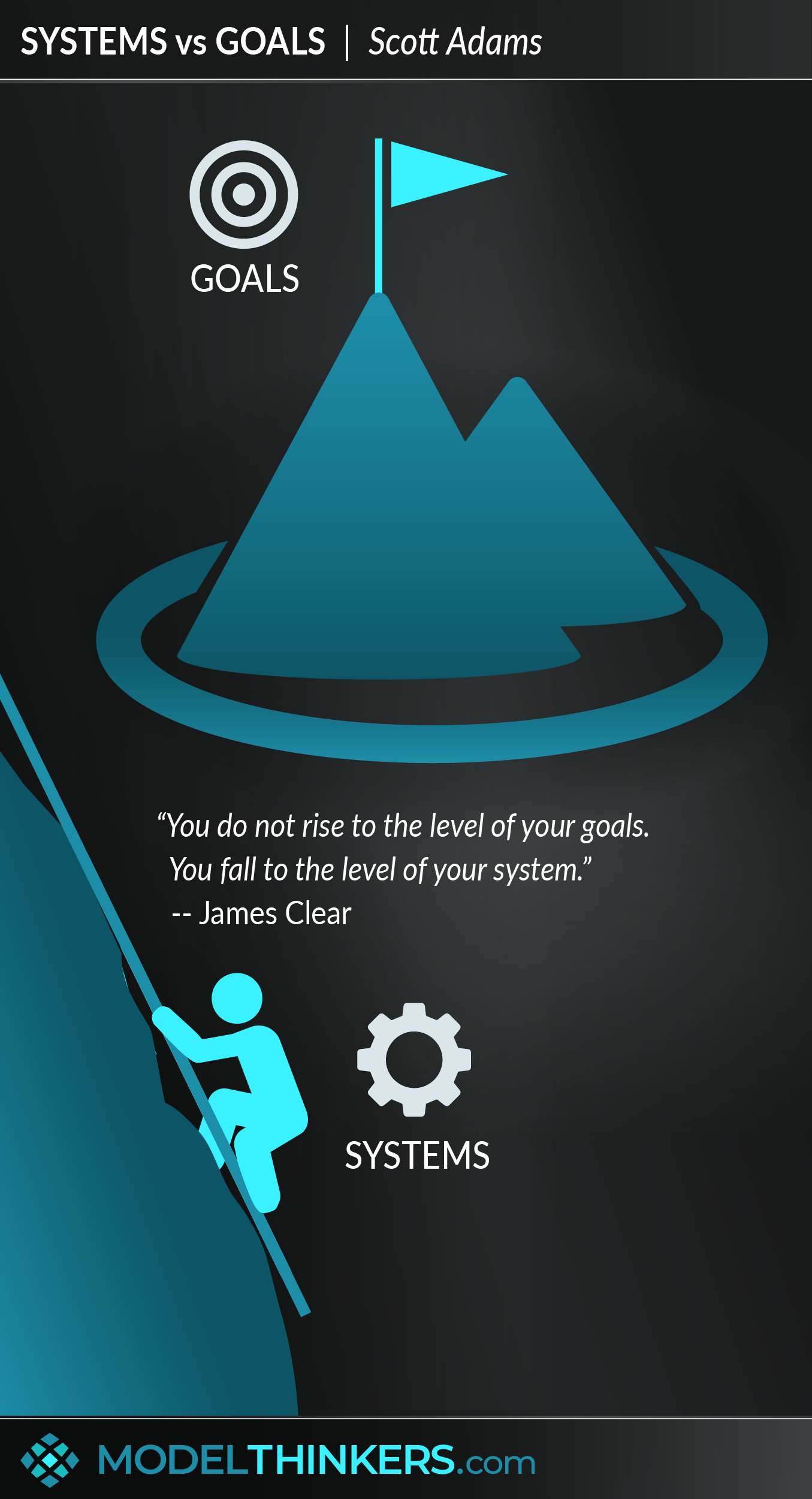
 0 saved
0 saved
 90.1K views
90.1K views








If you want to climb a mountain, don't just obsessively dream about the view from the mountain top. Instead, be an obsessive climber and let the rest take care of itself.
The Systems vs Goals model encourages you to focus on daily and ongoing systems rather than on long term and distant goals.
SYSTEMS, GOALS: WHAT'S THE DIFFERENCE?
Scott Adams offers a simple and useful definition to explain these terms in his book How to Fail at Almost Everything and Still Win Big: "If you do something every day, its a system. If you're waiting to achieve it someday in the future, it's a goal."
Others describe goals as statements about what you want to achieve, usually relating to long term objectives or changes.
PROBLEMS WITH GOALS.
There is some debate over the ideal nature of effective goals and I'll be adding models exploring that but, for now, here are some of the main criticisms of them:
- Goals are inflexible. They lock you into a fixed outcome as you try to navigate a complex, changing world.
- Goals can encourage unethical behaviour: Research in corporate settings have shown that while goals might boost performance, they can also lead to lower engagement and unethical behaviour. See links in Origins & Resources below for more.
- Goals make you a failure, most of the time. When you set a goal you're immediately positioning yourself in 'failure state' until you reach it, which can be a draining, even demoralising place to be.
THE POWER OF SYSTEMS.
By contrast, systems are more immediate choices, processes and habits. They're the daily routines that might not have a fixed outcome or goal but are helping you improve or move forward in a broad direction that you value.
Adams explains: "With a system, you are less likely to miss one opportunity because you were too focused on another. With a system, you are always scanning for any opportunity."
You might want to commit to specific systems or ones that lend themselves to be adaptable and better set you up for success. So, rather than saying you will jog every day, you might commit to being physically active every day which provides more flexibility and is more achievable.
FOCUS ON THE JOURNEY.
Systems vs Goals is essentially a call to action to focus on the journey, and let the destination look after itself.
For example, rather than having a goal of writing a novel, you could focus on a system of writing something, anything, for an hour every day. Doing this might lead you to write a book, but alternatively might lead to writing a successful blog or syndicated magazine column, thus resulting in a future where you are happy but never bother publishing a book after all.
Here's Scott Adams again: "Goal-oriented people exist in a state of continuous pre success failure at best, and permanent failure at worst if things never work out. Systems people succeed every time they apply their systems, in the sense that they did what they intended to do. The goals people are fighting the feeling of discouragement at each turn. The systems people are feeling good every time they apply their system."
A BALANCE?
Consider how far you want to take this model and whether you want to replace Systems vs Goals with 'Systems and Goals'. For example, rather than ditching goals completely, you might still use goals to identify a broad direction or even make use of more short term goals.
James Clear, the author of Atomic Habits, describes this well with a rowboat metaphor. He compares your goals to the rudder, and your systems as your paddle, explaining that: "Goals determine your direction. Systems determine your progress."
IN YOUR LATTICEWORK.
Systems vs Goals works extremely well with Habit Loops and Temptation Bundling to help embed daily habits and systems into your life. It's also a reminder of the power of marginal gains and continuous improvement using Compounding and the Domino Effect.
This model adds new depths to the Happiness Model and Ikigai, in terms of striving for daily satisfaction versus waiting for a future point of happiness.
You can also use this model to embrace an iterative approach to life and progress akin to Agile Methodology, which sets you up to better adapt using Feedback Loops. On that point, if your focus relates to developing complex skills, be sure to combine your system with Deliberate Practice or for continuous learning more generally consider Double Loop Learning.
And finally, you might want to consider how Hyperbolic Discounting can explain some of the limitations of goals.




- Focus on systems, let go of goals.
Consider an area you want to develop and focus on a realistic daily practice that will increase your expertise / impact in it. For example, if you want to write a novel, focus on reading or writing something every day. Want to lose weight, focus on eating healthily.
- Enjoy the journey, celebrate daily achievements.
‘It’s not about the destination, it’s about the ride.’ This common idiom supports the Systems vs Goals mental model, refocusing attention and enjoyment on daily practice rather than relying on delayed gratification of a long-term goal. It allows you to acknowledge daily success rather than hold yourself up against an unmet goal.
- Be present and deliver results, today.
A common pitfall for entrepreneurs is to obsess about a ‘visionary’ future state rather than obsessing about how to improve things today. Using Systems vs Goals supports a process of continuous improvement and to be present to immediate needs and opportunities.
- Use habits and routines.
Part of establishing sustainable systems is making them become automatic. To that end you might want to consider using Habit Loops or the EAST Framework, to help embed your desired routines.
The main limitation of this model arises if you read it as a flat dismissal of goal-setting altogether. That's a legitimate way of interpreting it, even though I explained the opportunity for a more balanced approach of using goals for direction and systems for progress.
Despite the critique of goals in the Overview, there is counter-evidence of the utility of setting long term goals for both motivational and directional purposes.
Another critique could be that the use of the term 'systems' in this context is simply daily goals. Isn't writing every day simply a daily goal? I have some sympathy with this idea though rather than getting bogged down in debates on definition, I think the important takeaway from the model is to value daily work and focus over a distant dream.
Get fit.
Scott Adams uses the example of a goal of going to the gym three times a week. This goal is easy to forgo when times get busy and might end with reduced motivation. The alternative argued by Adams is to focus on a system of ‘being active’ every day.
Jack Dorsey and theme days.
When Jack Dorsey was running Twitter and Square, he claimed that the secret to running both companies was to have themed days. This system was not about goals, but labelling days with specific areas of activity.
So Mondays were about management, Wednesdays marketing and Sundays for reflection.
Eating healthy vs losing weight.
This 2011 study examined the different outcomes between people who focused on losing weight (a goal) versus eating more healthy food (a system). Researchers found that those focusing on weight loss were less likely to succeed than those focused on eating healthier without a specific, overshadowing goal.
Systems vs goals is a mental model used for productivity and performance. It runs into direct contention with goal-focused mental models.
Use the following examples of connected and complementary models to weave systems vs goals into your broader latticework of mental models. Alternatively, discover your own connections by exploring the category list above.
Connected models:
- Feedback loops: to consider the effectiveness of a system or approach.
- Habit formation: as the ultimate human system that becomes automatic.
- Hyperbolic discounting: as a reminder of why long term goals have less impact than short term payoffs.
Complementary models:
- Deep work: incorporate focus and deep work as part of high-value systems.
- Pareto principle: use it to prioritise behaviours to include in a system.
- Activation energy: to understand the initial blocks you face and how systems can help to flatten or reduce them.
- Critical mass: understanding when a situation and system will fundamentally change.
While this model has been explored and talked about for some time previously, it was the cartoonist and author Scott Adams who solidified it into an approach. I'm open to earlier references but, for now, I'm attributing the model to him.
Scott Adams discusses this approach in How to Fail at Almost Everything and Still Win Big: Kind of the Story of My Life.
This BBC article is also a more in-depth exploration of this approach and includes references to the unethical behaviour that goal-settings can foster. And the quote in the diagram is from James Clear, the author of the wonderful book Atomic Habits.
 My Notes
My Notes
Oops, That’s Members’ Only!
Fortunately, it only costs US$5/month to Join ModelThinkers and access everything so that you can rapidly discover, learn, and apply the world’s most powerful ideas.
ModelThinkers membership at a glance:






“Yeah, we hate pop ups too. But we wanted to let you know that, with ModelThinkers, we’re making it easier for you to adapt, innovate and create value. We hope you’ll join us and the growing community of ModelThinkers today.”





